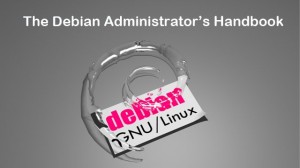This is my monthly summary of my Debian related activities. If you’re among the people who made a donation to support my work (364.18 €, thanks everybody!), then you can learn how I spent your money. Otherwise it’s just an interesting status update on my various projects.

Dpkg and Multiarch
I had some hope to have a multiarch-enabled dpkg in sid for Christmas as Guillem told me that it was realistic. Alas Guillem got sick. We’re in January and we’re still not there.
While some of Guillem’s commits in December were related to multi-arch, the size of his pu/multiarch/master branch did not really shrink. We still have 36 commits to merge… most of the work he did was refactoring some parts of the code that were already merged. And he initiated some discussion on interface changes. I participated to those discussions hoping to bring them to a quick resolution.
I’m still maintaining my own pu/multiarch/full branch, it is based on Guillem’s branch but with further fixes that I developed and that he has not yet merged and with a change reverted (Guillem’s branch allows crossgrading packages between different architectures while dpkg does not manage this correctly yet).
I can only hope that January will be the last month of this never-ending saga. It’s been one year since I started working on this project. 😐
Misc dpkg work
I reviewed (and later merged) a patch of Kees Cook to enhance dpkg-buildflags so that it can report which hardening features are enabled. This feature might then be used by tools like lintian to detect missing hardening features.
I mentored Gianluca Ciccarelli who is trying to enhance dpkg-maintscript-helper to take care of replacing a directory by a symlink and vice-versa.
I took care of #651993 so that dpkg-mergechangelogs doesn’t fail when it encounters an invalid version in the changelog, and of #652414 so that dpkg-source --commit accepts a relative filename when a patch file is explicitly given.
Guillem also merged a fix I developed for LP#369898.
Packaging work
WordPress 3.3 came out so I immediately packaged it. Despite my upstream bug report, they did not update their GPL compliance page which offers the corresponding sources for what’s bundled in the tarball. So I hunted for the required sources myself, and bundled them in the debian.tar.xz of the Debian source package. It’s a rather crude solution but this allowed me to close the release critical bug #646729 and to reintroduce the Flash files that were dropped in the past… which is great since the Flash-based file uploader is nicer than the one using the browser’s file field.
Quilt 0.50 came out after 2 years of (slow) development. The Debian package has many patches and several of them had to be updated to cope with the new upstream release. Fortunately some of them were also merged upstream. It still took an entire morning to complete this update. I also converted the packaging from CDBS to dh with a short rules file.
Zim 0.54 came out and I immediately updated the package since it fixed a bug that was annoying me.
Review of the ledgersmb packaging
As the sql-ledger maintainer (and a user of this software for my accounting), I have been hoping to get ledgersmb packaged as a possible replacement for it. I have been following the various efforts initiated over time but none of them resulted in a real package in Debian.
This is a real pity so I tried to fix this by offering to sponsor package uploads. That’s why I did a first review of the packaging. It took several hours because you have to explain everything that’s not good enough.
I also filed a wishlist bug against lintian (#652963) to suggest that lintian should detect improper usage of dpkg-statoverride (this is a mistake that was present in the package that I reviewed).
nautilus-dropbox work
I wanted to polish the package in time for the Ubuntu LTS release and since Debian Import Freeze is in January, I implemented some of the important fixes that I wanted.
The Debian package diverges from upstream in that the non-free binaries are installed in /var/lib/dropbox/ instead of $HOME.
Due to a bug, the files were not properly root-owned so I first fixed this (unpacking the tarball as root lead to reuse of the embedded user & group information, and those information changed recently on the Dropbox side apparently).
Then we recently identified other problems related to proxy handling (see #651065). I fixed this too because it’s relatively frequent that the initial download triggered during the package configuration fails… and in that case it’s the user that will re-trigger a package download after having given the appropriate credentials through PackageKit. Without my fix, usage of pkexec would imply the loss of the http_proxy environment variable and thus it would not be possible for a user to download through a proxy.
Last but not least I reorganized the Debian specific patches to better separate what can and should be merged upstream, from the changes that upstream doesn’t want. Unfortunately Dropbox insists on being able to auto-update their non-free binaries, they are, thus, against the installation under /var/lib/dropbox and the corresponding changes.
Book update
We’re making decent progress in the translation of the Debian Administrator’s Handbook, about 6 chapters are already translated (not yet reviewed though).
The liberation campaign is also (slowly) going forward. We’re at 67% now (thanks to 90 new supporters!) while we were only at 60% at the start of December.
Thanks
See you next month for a new summary of my activities.

